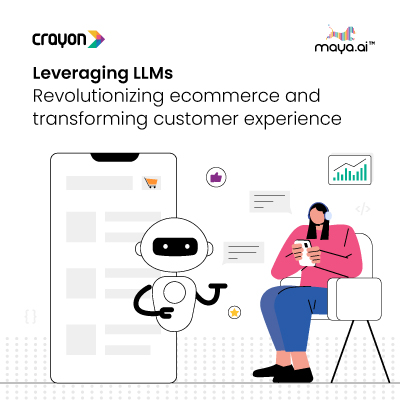Gone are the times when marketers would rely on their instincts to launch ad campaigns. In this day and age, when the competition knows no bound, your marketing has to be right on the money. Otherwise, you stand no chance to get the better of your competitors. That’s exactly why data-driven marketing has become a buzz word in the business world.
The way data-driven marketing has enhanced the accuracy of marketing campaigns, it has pretty much become a requirement today. With the increased accessibility of customer information and enhancement of big data, marketers perceive data-driven strategy as crucial to success.
According to Insights Report, 64% of the respondents to a survey ‘strongly agree’ that data-driven marketing is essential for growth in the current global hyper-competitive economy.
Let’s have a close look at the perks that come with this mode of marketing:
Helps you in personalized marketing
In the past, a one-size-fits-all marketing campaign was launched for all customers. There was no way marketers could pay attention to individual needs. However, this trend has changed with the introduction of a data-driven marketing strategy.
With the help of data, marketers today, can generate campaigns keeping a particular potential consumer in mind. Personalization gives the impression that brands care for their customers and the consumers pay off by showing their loyalty towards the brands.
Today, people are familiar with the turns and tricks used by marketers, so it makes personalizing even more important.

The above infographic shows some of the chief benefits of personalization.
You can take an informed decision
Having detailed market insight makes life easier for brands. It saves brands from throwing money blindly into marketing. With this much information serving you as a cushion, you always know where you are heading so it minimizes the risk of failure as well.
The data not only helps you to take an informed decision but you can even forecast results to some extent because you are already aware of how customers are likely to behave.
Leads to better product development
According to an article published in Harvard Business Review, poor understanding of the market is the biggest reason behind flawed product development.
Suppose your brand has launched a top-notch product without considering public demands. If you are lucky, the product might do well. If not, get ready for a huge setback. That’s how it used to be until recently. But data-driven marketing has completely changed the dynamics of product development.
Needless to say, the data spells out everything about your audience. When you know what people expect from you, then you proceed with the product accordingly. It is like heading to the destination with a map in your hand.
Basically, data-driven marketing keeps you connected with your customer base. It includes tracking their activities on social media and other platforms which give you “a more than a rough idea” about their changing needs. To sum up, the more you are connected with customers, the less likely it is to launch a defected product.
Optimizing customer experience
A study conducted by Temkin Group finds that companies that earn 1 billion dollars annually are likely to earn an additional 700 million dollars within three years by investing in customer experience. In the past, companies had to concentrate on product quality to make the mark. But times have changed.
It is perhaps more important to care about the customer experience today. Particularly, marketing to millennials is about customer experience. If it was not the case, 86 percent of the customers would not be willing to pay more for the sake of great customer experience. Customer satisfaction not only improves the retention rates but also leads to customer loyalty towards the brand.
A fair proportion of brands is applying data-driven marketing techniques just to enhance their customer experience. You need constant measures and analysis to improve customer experience which is the virtue of data-driven marketing.

These stats speak volume about the growing importance of customer experience.
Enhances customer engagement
With the help of data-driven marketing, you can create content which gets maximum social shares. Since you have identified customer needs through data and if your content relates to them, they will have no problem sharing it.
Following are the major takeaways of social sharing:
- Circulation of your content on a larger scale will inject trust among customers regarding your brand
- You will reach out to the larger audience hence, more opportunities for conversion
- You will be overwhelmed with feedback which is akin to improve customer experience
- Improves content marketing
The best thing about data-driven marketing strategy is that you are always learning something new. Same applies to the content. Imagine brands investing thousands of dollars in content marketing without being able to measure whether or not their content strategy is working.
How can you improve if you don’t know your mistakes in the first place? Content marketing is an important tool for promotion. You can’t take it casually for sure. That’s where data-driven marketing comes into action.
It helps you to know how people are responding to your content. Is your content strategy working or it has been outdated? When you can find answers to suchlike burning questions, your content becomes more relevant and performs better.
The above chart shows the gradual growth of budget in content marketing of the last 10 years. The popularity of content marketing is quite evident.
Yields you maximum ROI
There are so many platforms of marketing, but the audience of one platform behaves differently than the other. For example, your Facebook followers might not be as receptive to your campaigns which did wonderfully well on Twitter or LinkedIn because the audience of these channels has a different approach.
The data will help you to map out what kind of campaign should be launched for a particular medium to ensure maximum Return on Investment (ROI).
Keeping an eye on the competitors
To stay in the competition, it is important to know what your competitors are up to. By doing so, not only you outsmart them in business but you can also learn from them. Maybe they are using better keywords or making better use of hashtags than you?
You can also get an idea where you stand in the competition by keeping an eagle’s eye on your business rival. Make no mistake – it takes more than just following other brands on social media or reading their blogs on a daily basis. Analytic tools can get the job done for you without much fuss.
Automation process becomes more lethal
Automation tools have been a great assistance for marketers especially, in the big businesses where the workload is overwhelming. There is no question about the utility of these tools but they are mostly used to save time and energy. Imagine, how lethal automation tools can become if they are supplemented by implacable data.
Through data, brands can learn when their customers are active on social media. Brands can simply automate their posts at those timings for higher conversion.
Same stands true for email marketing. Once businesses have access to data, they can schedule their emails when they are likely to be read. Regardless of how personalized your content may be in the email, it is useless if people don’t bother reading it. It is like striking when the iron is red-hot.





















